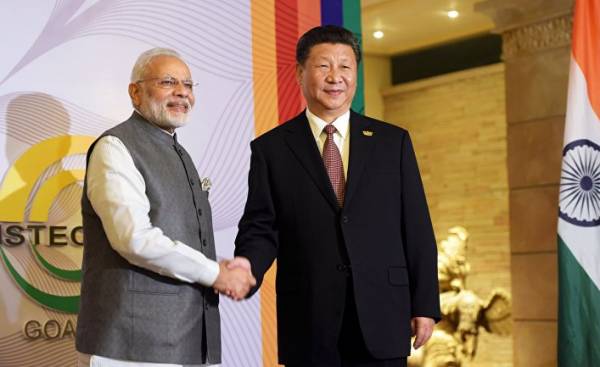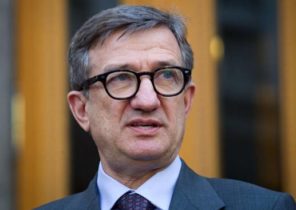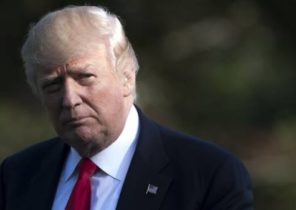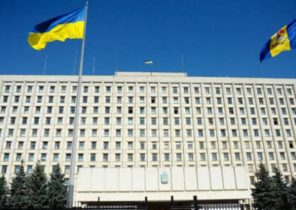
When we in Denmark are talking about Asia, we usually are only talking about China. The impression is that other Asia as if does not exist, and even India, though it is expected that in a few years it will overtake the population of China and become the most populous country in the world.
Recently became a sensation when technogiant Chinese company Alibaba has announced that over the next five years she will try to win the Danish and European markets chains such American competitors as Amazon and eBay.
But the showdown between the two largest trading platforms has already begun in India. The main explanation is that in the future the company will be in trouble if she’s not going to be the largest in India and other Asia.
The numbers speak their own language. The population of India is 1.2 billion people. For comparison, the population of the EU — a paltry 510 million people, the population is falling, while the population of India is growing rapidly. Besides, we should not forget that India is not only India. Baboutmost of the population in rural areas is still poor, but the middle class is growing — especially in large cities, and that means millions and millions of Indians are now experiencing demand for the sake of consumption, that of the Danes.
Progress also means that India has become the seventh largest economy in the world, and the upward trend will continue. Weekly newsletter Mandag Morgen last month cited the results of a recent study conducted by consulting firm PricewaterhouseCooper, which suggests that in 2050 China will be the largest economy in the world, he will follow India, but the US will slide into third place.
Large-scale investments
The world’s largest tech giants, of course, foresaw this development, and now the struggle for India, reminiscent of a tropical storm, and heavy clouds gather in different corners of the globe. According to the newspaper the Wall Street Journal, Amazon is close to that to spend 34 billion euros to strengthen its position in India, while, for example, Uber is spending more than 6.8 billion. This should be viewed in comparison with what China’s Alibaba in the last two years has invested more than 4.8 billion kroner in companies that should provide her with a base in India.
In addition, Chinese technology companies in recent years have invested 22 billion kroons in Indian firms-startups. American technology companies have used almost 10 billion crowns for this purpose.
Although India in the future will be the global economic super League, together with China, the situation in these two countries, however, varies widely.
A critical difference of India from China is that it is the largest democracy in the world with a relatively free media, while the Chinese government firmly holds power in its hands and stronger suppresses its critics.
Maybe that’s the stamp of democracy in India and the blame that while we in the West often talk about the behavior of the Chinese leadership and the violation of human rights, what is happening in India has attracted far less attention. Although there are alarming signals.
The Prime Minister of India welcomed numerous foreign investments in the country, in 2014, he came to power on a wave of promises to provide economic progress. Although the annual growth is in India of 6-7%, the development of the country holding back a monstrous infrastructure, widespread corruption, and a powerful bureaucracy with which modi promised to investigate.
Until modi became Prime Minister, he headed the state of Gujarat, which turned into the most favorable for doing business, and economically progressive state in India. Now his goal is to go down in history as a leader, modernising India.
Black shadow
However, over modi looming black shadow, as he becomes more potentially dangerous. Modi — the party member “Bharata Janata party,” the party of Hindu nationalism, whose roots date back to the movement that began decades ago, aimed to make India a Hindu state. Today India, according to its Constitution is a secular state.
Modi, for years, subjected to strong criticism from human rights organizations, because Hindus in 2002 carried out a massacre of Muslims in his native Gujarat. It is believed that if killed from a thousand to two thousand people. Critics believe that modi did nothing to stop the massacre, and besides, he never judged her, which led to the fact that the United States sees him as a pariah, and before modi became Prime Minister, refused to give him a visa.
Becoming Prime Minister, modi haven’t done anything to mitigate the level of religious tension in the country. On the contrary, in recent years it has become more vigilantes of the Hindu nationalists, they repeatedly — the last time last week — attacked the Muslims and killed them, accusing Muslims that they slaughter the cows, and the cow — a sacred animal of the Hindus. Modi on the occasion of these murders, mostly kept silent, although they wrote a lot as the Indian press and social media.
Conversely, modi contributed to the growth of tension, when his party last month won the local elections in the most densely populated Indian state of Uttar Pradesh. With its more than 200 millions of inhabitants of this state it is possible to compare with Brazil. After the elections, modi was appointed head of the state of extreme Hindu nationalist adityanath of Yoga (Yogi Adityanath). He is known for his fiery speeches, full of hatred for Muslims, constituting 20% of the population in Uttar Pradesh.
In particular, Yogi adityanath is called on Hindus to kill ten Muslims whenever kill one Hindu. According to the Wall Street Journal, he was charged with countless criminal cases for inciting religious hatred.
Milan Vaishnava (Milan Vaishnav) from the analytical center of the Carnegie Endowment for International Peace, said last month in an interview with The Guardian that this appointment exacerbates the issue that has always existed against modi.
“Whether it is project development or Hindu nationalism. This appointment confirms that there is not to say “either… or”. He is two-faced. Modi’s single — largest Converter of the economy and the other a staunch nationalist,” he said.
If the religious tensions will increase if the violence will be even greater, it will affect not only relations with the Muslim neighbor of India — its arch-enemy Pakistan, which like India is nuclear power. It will affect other Muslim countries in the region such as Malaysia and Indonesia, which in recent years is very sensitive to the persecution of Muslims in Myanmar.
And as investors lined up, and India is becoming an increasingly important part of the global economy, it may have consequences for the whole world — even for Denmark.
So we have no choice but to be interested in India at least a little more.
Claus Thomsen — correspondent of Politiken in Asia







